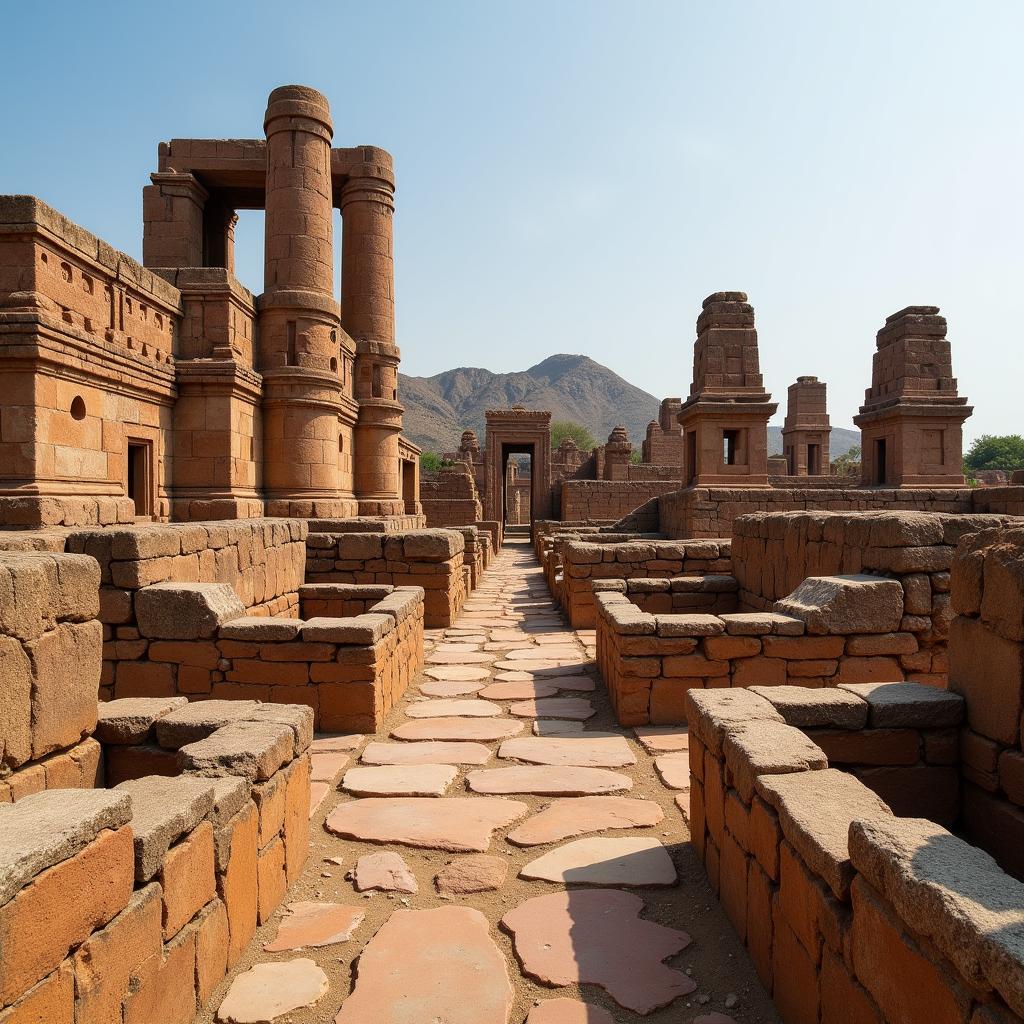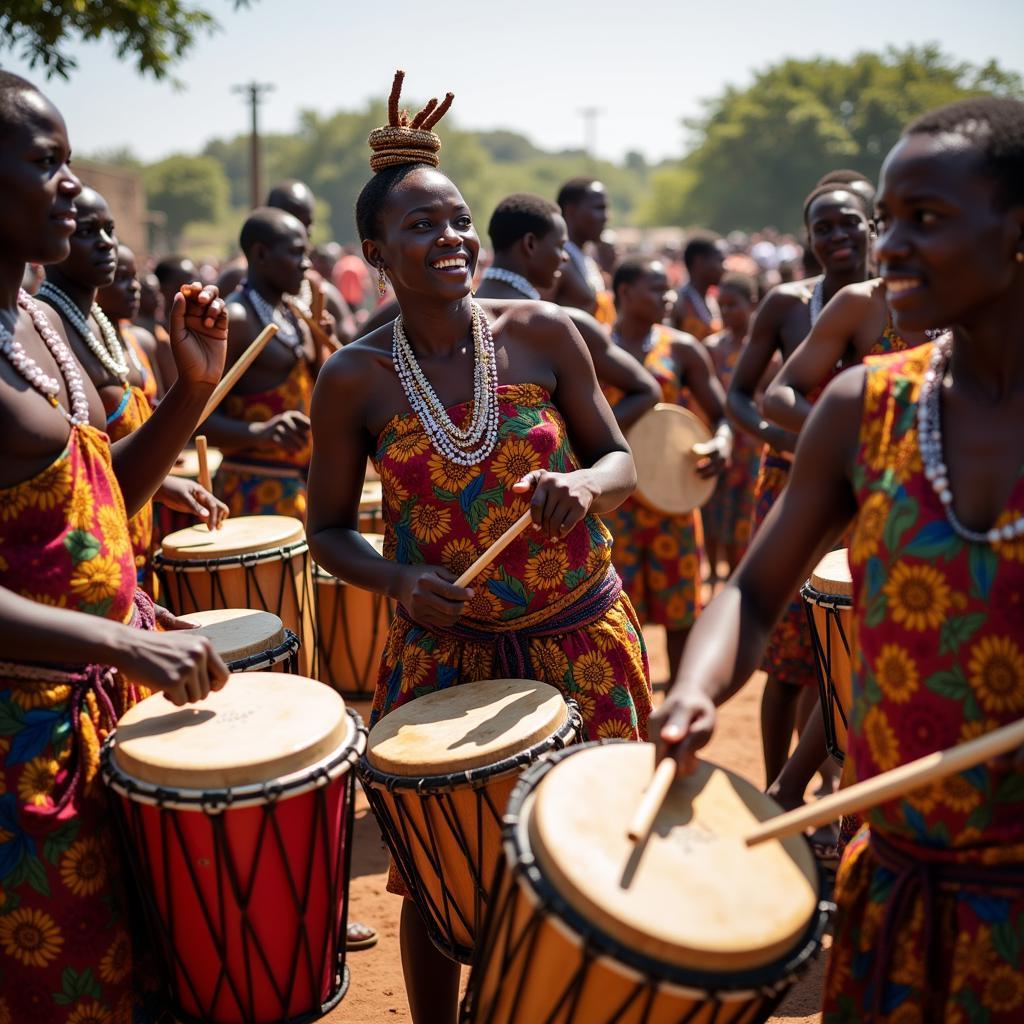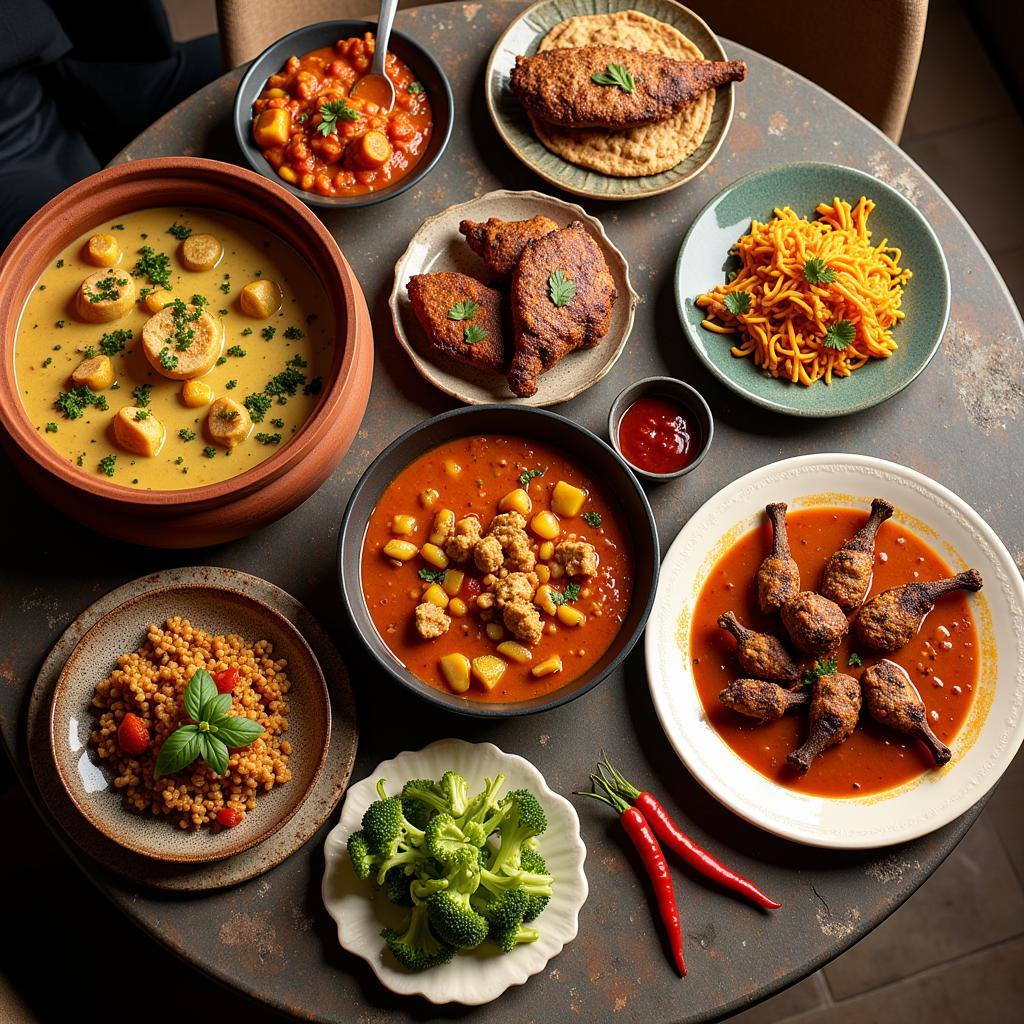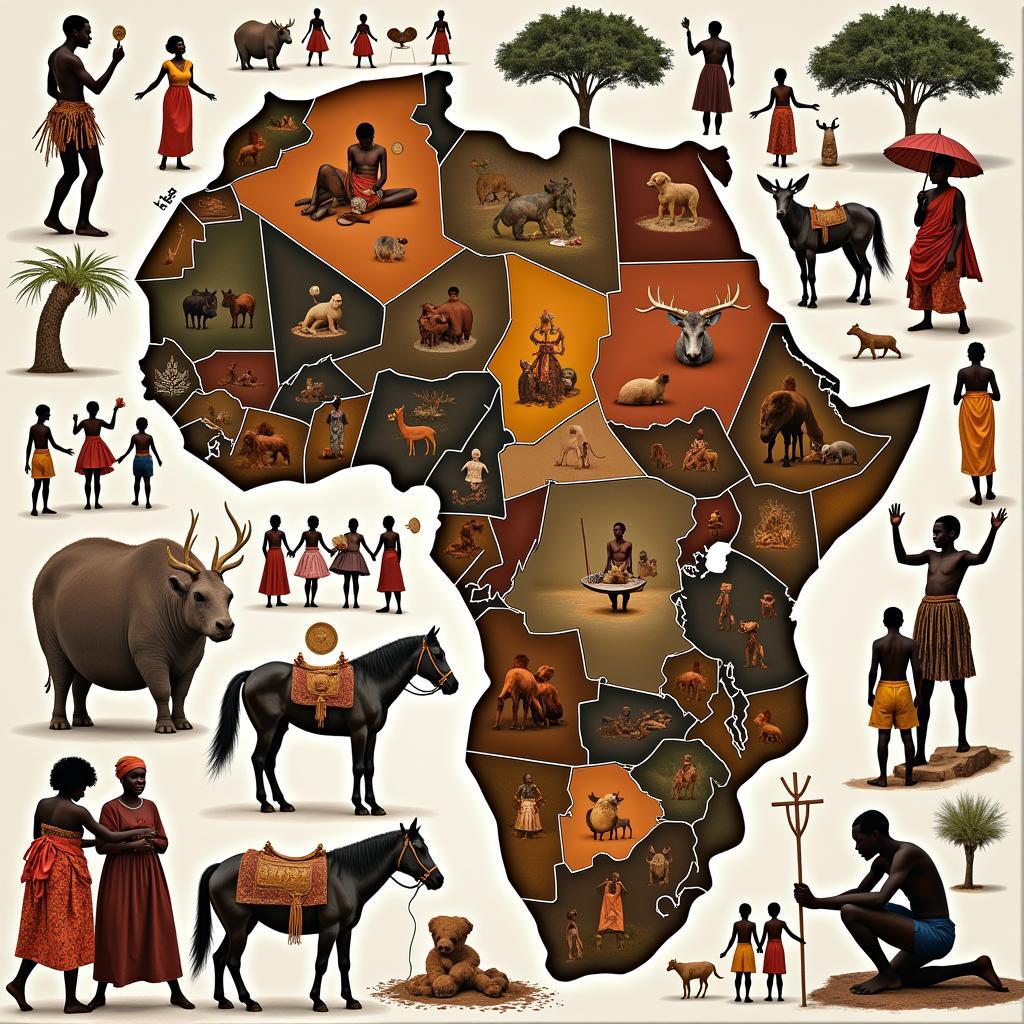Exploring the Rich Tapestry of African Culture
The African continent is a land of immense diversity, boasting a vibrant tapestry of cultures, traditions, and artistic expressions. From the ancient pyramids of Egypt to the rhythmic beats of West African drumming, Africa’s cultural heritage is as vast and varied as the continent itself. This article delves into the captivating world of African culture, exploring its historical significance, artistic brilliance, and enduring traditions.
A Historical Journey Through Time
Africa’s history stretches back millennia, encompassing the rise and fall of empires, the development of complex societies, and the birth of innovations that shaped the world. Ancient Egypt, often hailed as the cradle of civilization, left an indelible mark with its monumental architecture, hieroglyphic writing system, and sophisticated religious beliefs. Across the continent, kingdoms like Mali, Songhai, and Great Zimbabwe flourished, leaving behind impressive ruins that testify to their architectural prowess and cultural sophistication.
 Ruins of an Ancient African Kingdom
Ruins of an Ancient African Kingdom
The Rhythms of Africa: Music and Dance
Music and dance are integral to the African cultural experience, serving as a means of storytelling, celebration, and spiritual expression. From the pulsating rhythms of the djembe drum to the intricate melodies of the kora, African music is characterized by its polyrhythmic structures, call-and-response patterns, and improvisational nature. Dance forms are equally diverse, often reflecting local traditions, spiritual beliefs, or social customs.
 Vibrant African Drumming Ceremony
Vibrant African Drumming Ceremony
A Feast for the Senses: African Cuisine
African cuisine is a tantalizing fusion of flavors, reflecting the continent’s diverse geography and cultural influences. From the fragrant tagines of North Africa to the spicy stews of West Africa, each region boasts its unique culinary traditions. Staple ingredients include grains like millet and sorghum, root vegetables like yams and cassava, and a variety of legumes. Spices like ginger, cumin, and coriander add depth and aroma to many dishes.
 A Colorful Spread of African Dishes
A Colorful Spread of African Dishes
The Importance of Community and Tradition
Community and tradition lie at the heart of African culture. Strong family ties, respect for elders, and a deep sense of belonging are highly valued. Oral traditions, passed down through generations, preserve history, folklore, and moral values. Festivals and ceremonies mark important life events and provide opportunities for communities to come together and celebrate their shared heritage.
In conclusion, Africa’s cultural landscape is a vibrant mosaic of traditions, art forms, and historical legacies. From the ancient pyramids to the rhythmic beats of traditional music, the continent offers a captivating journey for those seeking to explore its rich tapestry.

